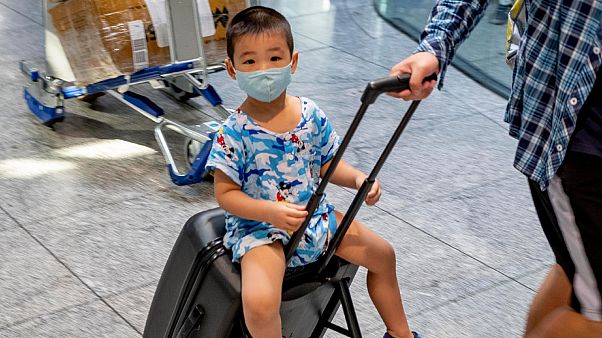England and Scotland already have compulsory mask-wearing on public transport, and NI does on most buses, trains and ferries. Wales will see them made mandatory on public transport from July 27.
And as scientists across the world race to develop a COVID-19 vaccine, UK Prime Minister Boris Johnson has labelled “anti-vaxxers”, people opposed to vaccines, as “nuts.”
Britain has Europe’s highest-recorded death toll from the pandemic, which stands at over 45,000, according to a tally by Johns Hopkins University.
France
French Prime Minister Jean Castex announced on Friday that as of August 1, travellers entering France from 16 countries where COVID-19 circulation is strong — including the United States — must undergo compulsory tests on arrival at French airports or ports, unless they can present a negative test less than 72 hours old from their countries of departure.
Those testing positive on arrival must isolate for 14 days.
Health authorities say cases on the French mainland have surged 66% in the past three weeks and 26% in the last week alone.
Concerns had already prompted the government to make mask-wearing mandatory in all indoor public spaces this week.
Belgium
In Belgium, health authorities said a three-year-old girl has died after testing positive for COVID-19 as new infections surged 89% from the previous week.
The government has bolstered restrictions to slow the spread of coronavirus, including making masks mandatory in crowded outdoor public spaces.
Romania
Romania set an all-time high for daily new infections on Friday and authorities blamed the surge on a failure to wear masks, including in indoor public places or on mass transit.
Italy
In Italy, masks must be worn in shops, banks, on public transport and outdoors where it’s impossible to keep a safe distance apart.
Most new cases in the country have occurred in the north — where the outbreak in Europe began — but southern regions have lately been seeing clusters of infections.
Many recent cases in Italy have been traced to people returning from abroad, most of them foreign workers. Other clusters were among migrants rescued at sea and vacationers.
Last week, the mayor of the tourist island of Capri ordered people to wear masks in the streets. Capri’s main square, with its trendy cafes and narrow streets, had been jammed with holiday-goers, many not wearing masks.
Spain
Amid fears in Spain that poor living conditions for seasonal agricultural workers are creating coronavirus hotspots, the Spanish farm minister said Friday that authorities are pressing employers to provide decent accommodation and transport for their workers.
The Health Ministry reported 971 new daily infections, the biggest daily increase since Spain’s lockdown ended.
Germany
German authorities plan to set up testing stations at airports to encourage people arriving from high-risk countries to get tested for the coronavirus.
The country will also allow people arriving from overseas to be tested for free within three days.
The decision, made by the health ministers of Germany’s 16 states, came amid mounting concern that holidaymakers could bring the virus back with them.
Overall, Europe has so far seen more than 201,000 deaths during the coronavirus pandemic, according to Johns Hopkins University.
